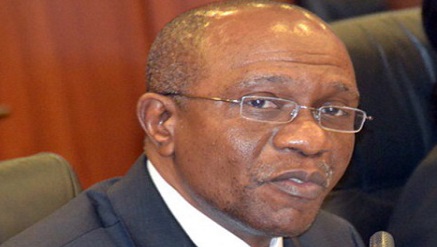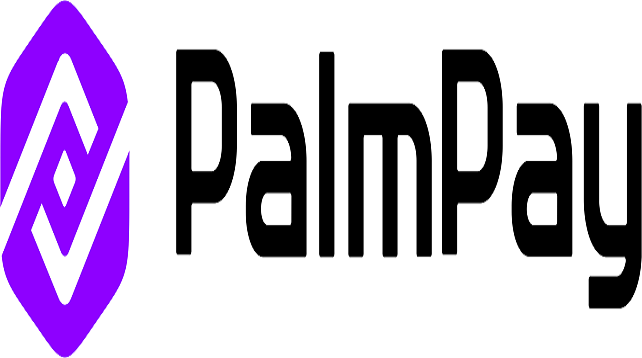E-Financial
CBN Lists Benefits of PSV 2020 Initiative

The Payments System Vision 2020 (PSV2020) initiative of the Central Bank of Nigeria (CBN) has been described as a catalyst in the revolutionised payment system landscape of the country.
Besides, it has been assessed to have facilitated economic activities, by providing safe and efficient mechanisms for making and receiving payments with minimum risks to the central bank, payment service providers and end users, extending the availability and usage to all sectors and geographies, banked and unbanked, and conforming to internationally accepted regulatory, technical and operational standards.
Godwin Emefiele, CBN governor, who made the observation at the inauguration of the Payments System Strategy Board, Scheme and Initiative Working Groups, reiterated that the core objective of PSV2020, was to make our payments system “nationally utilised and internationally recognised”.
He added: “It is gratifying to note that our country is not only acknowledged as a major economic force within Africa, but also increasingly becoming an active player in the global economy and to participate actively, our payments system must be successfully benchmarked against the global best practices.”
Emefiele noted that through the implementation of the original PSV2020 initiatives by the CBN, in association with the banking community, Nigeria has witnessed an impressive growth of electronic payments and a shift from the overwhelming dominance of cash as a means of payment.
He listed the implementation of the Nigeria Uniform Bank Account Number; deployed the real time gross settlement systems where transfer of money or securities takes place from one bank to another on a “real time” and on “gross” basis, without waiting period; and the popular cash-less policy.
Others were the deployment of deployment of the Scripless Securities Settlement System; introduction of Cheque Truncation, which reduced clearing cycles for Automated Clearing House payments and cheque from three days (T+2) to next day (T+1); and enthronement of limits on encashment of third party cheques and a maximum cap of N10 million for cheque payments, to encourage the use of electronic payments channels.
There were also the adoption of mobile money as a major channel for delivering financial inclusion; support for the implementation of the Federal Government’s Treasury Single Account; and migration of all payment cards from magnetic stripe technology to Chip-and-PIN, otherwise known as EMV, due to the assessed weaknesses of the former.
According to him, though the system has recorded some significant achievements so far in this journey, a lot still remains to be done and we do not intend to rest on our oars.
However, the new focus, which emerged from a detailed assessment of the Nigerian payments infrastructure, identified eight new industry verticals aimed at advancing the adoption of the electronic payments in Nigeria.
The CBN chief pointed out that in agriculture sector, the focus would be to develop electronic payment methods to support the value chain from inputs to tertiary production and supply, while a cashless model for Smart Cities will be developed.
For the smart cities scheme, the focus will be on both existing cities and “greenfield cities”, to ensure that less cash is used as a means of payment in retail outlets, transportation, and food.
Government’s cash flows would be reformed to ensure adoption of end-to-end electronic channels for all forms of salaries, pensions, suppliers, individual & business taxes payment and collection of revenues by private and public sector organisations.
In hotel and entertainment, there would be need to work with key pilot hotels and other key entertainment venues such as restaurants, cinemas, sports centres to promote the cash-less initiative.
Under the transportation sector, he said the new focus would develop strategies for getting the public to pay for transportation (inter-city and intra-city) electronically, while a pilot implementation would be organised with various transportation companies.
Expressing confidence on the success of in the transport sector, he said that a lot of traction has been gained on this initiative on air transportation, while a lot still remains to be done on land, water and rail transport systems.
Other areas of focus include education, health and bill payments and direct debits, by designing and developing channels with components such as grants, scholarships, consultancy services, Internally Generated Revenue (IGR), tuition and administrative fees, provision of personal and medical information and payments for health and medical services and driving the current initiative for bill payments like insurance, pensions, telecommunications, Cable TV and utilities to conclusion.
To achieve these, CBN invited nominations from the stakeholders for capable people to serve in any of the new Initiative Working Groups, one for each industry vertical, comprising the user community, banks and other service providers.
The groups will work on the principle of identifying quick wins for an initial period of two years, with an option to extend for another two-year term, subject to the level of achievements.
E-Financial
GOEs’ Remit Over ₦2tn to FG in 2024

Independent revenue remittance by the Government-Owned Enterprises (GOEs) moved from ₦200 billion in 2013 to over ₦2 trillion in 2024, Fiscal Responsibility Commission (FRC) confirmed the updated figure, on Wednesday.

FRC attributed the surge to collaboration between it and House of Representatives Public Accounts Committee (PAC).
Speaking at 2025 National Conference on Public Accounts and Fiscal Governance, held at the Transcorp Hilton, Abuja, Executive Chairman of the Fiscal Responsibility Commission (FRC), Victor Muruako, Esq however notes with concern persistent challenge despite achievements. He cited weak enforcement mechanisms, limited public awareness, and the slow domestication of the FRA at the subnational level as according to him, only 26 out of 36 states have adopted similar laws.
He advocated for the establishment of a National Fiscal Governance Framework to improve coordination and strengthen audit and oversight structures.
Muruako further underscored the need for strict adherence to constitutional provisions, particularly regarding public debt and borrowing, which remain under the exclusive legislative list. He urged federal and sub-national actors to align their fiscal policies under the renewed hope agenda of President Tinubu’s administration.
Muruako called on state and local government operators across Nigeria to adopt and fully implement fiscal responsibility laws in line with the federal framework.
The event organized by House of Representatives Public Accounts Committee (PAC), brought together key financial stakeholders to discuss strategies for promoting transparency and sustainable development in Nigeria’s public financial management.
He lauded administration’s of president Bola Ahmed Tinubu commitment to strengthening financial policies aimed at driving economic growth. He emphasized that states and local governments must “key into” the Fiscal Responsibility Act (FRA) to ensure fiscal discipline and alignment with federal financial standards.
Highlighting a critical legislative gap, Muruako noted that the FRA 2007 currently outlines 54 offenses but does not prescribe punishments for offenders. He called for the urgent amendment of the Act to include stronger penalties, thereby enhancing compliance and service delivery.
“The Act must be amended speedily for efficiency and to deliver real value to Nigerians,” he stressed.
He congratulated the PAC, led by Hon. Bamidele Salam, for hosting the conference, which he described as a pivotal step toward strengthening accountability in the public sector.
He advocated for the establishment of a National Fiscal Governance Framework to improve coordination and strengthen audit and oversight structures.
Muruako further underscored the need for strict adherence to constitutional provisions, particularly regarding public debt and borrowing, which remain under the Exclusive Legislative List. He urged federal and subnational actors to align their fiscal policies under the Renewed Hope agenda of President Tinubu’s administration.
Reaffirming the FRC’s commitment to advancing transparency and reducing financial leakages, Muruako pledged continued support to the PAC in institutionalizing sound public financial management practices.
He also congratulated the committee for securing Nigeria’s hosting rights for the 2025 West African Association of Public Accounts Committees (WAPAC) Annual Conference, describing it as a testament to Nigeria’s leadership in regional fiscal governance.
E-Financial
Union Bank Challenges High Court Ruling in Jimoh Ibrahim Case

Union Bank of Nigeria has reacted to the recent judgment delivered by Justice Abike Fadipe of the Ikeja High Court involving Senator Jimoh Ibrahim, NICON Investment Limited, Global Fleet, and the bank.

The bank expressed strong disagreement with the ruling and confirmed that its legal team has been directed to file an appeal immediately. It said the court’s position on issues such as debt consolidation, locus standi, and third-party liability contradicts existing legal principles and the bank’s understanding of the facts.
In a statement released by Mrs. Olufunmilola Aluko, Chief Brand and Marketing Officer, Union Bank reiterated that the relevant debt obligations had been transferred to the Asset Management Corporation of Nigeria (AMCON), adding that all actions taken were in line with the law and standard banking procedures.
Union Bank assured stakeholders, customers, and the general public of its continued commitment to ethical practices, legal compliance, and professional conduct. It said it remains dedicated to protecting stakeholder interests and upholding the integrity that has defined its operations for more than a century.
The bank concluded by thanking all stakeholders for their trust and support as it navigates the ongoing legal process.
E-Financial
PalmPay Expands Access to Digital Insurance Through Strategic Partnerships

PalmPay, a leading digital banking platform in Africa has announced the launch of strategic partnerships with top-tier insurance providers to offer accessible, affordable and simplified insurance products directly within the PalmPay app.

This initiative reflects the brand’s continued commitment to deepening financial inclusion and underscores its mission to improve the wellbeing of everyday Nigerians.
With only about 8.9% of Nigerians currently covered by any form of health insurance, the country remains one of the least insured populations in Africa. Barriers such as low awareness, affordability challenges, and trust issues continue to hinder broader adoption of insurance products.
PalmPay’s new insurance offering directly addresses these challenges by simplifying the purchase and management of insurance policies within the app. The PalmPay insurance feature is designed to make essential coverage, from health to device, and life insurance easily accessible at affordable prices, eliminating the traditional complexities often associated with insurance.
“Insurance is often perceived as complex or inaccessible, especially among underserved communities.” said Habib Kowontan, Head of Wealth Product at PalmPay. “Through these partnerships, we aim to break down those barriers by offering simple, reliable and affordable insurance options that are easily accessible within the PalmPay app.”
With over 35 million users across Nigeria, PalmPay continues to evolve as a smart, consumer-first digital banking platform. The integration of insurance services complements its growing suite of offerings, which includes transfers, bill payments, high-interest savings, and debit card services, making PalmPay one of the most comprehensive digital banking platforms in the African market.
“Our goal at PalmPay is to remove barriers and make essential services easily accessible to everyone,” said Mr Chika Nwosu, Managing Director of PalmPay. “Through these strategic partnerships, we’re expanding our services to be more inclusive and empowering our users with products that will positively impact their lives and finances.”
This rollout marks a significant milestone in PalmPay’s broader strategy to empower users with tools that enhance their daily lives. Building not just a payments app, but a smart and trusted financial partner for millions of Nigerians.

 Telecom3 days ago
Telecom3 days agoNCC Wins Global ICT Award for Digital Awareness in Schools

 Broadcasting2 days ago
Broadcasting2 days agoEFCC Re-Arraigns Echefu, TStv CEO for Allegedly Defrauding Ex-Minister of N1Bn, $1.3m

 Broadcasting3 days ago
Broadcasting3 days agoMore Woes for MultiChoice as Ghana Orders 30% Price Cut

 News3 days ago
News3 days agoNnamani, CEO Digital Realty Nigeria Bags Digital Economy Icon of the Year @ Digital Innovation Awards in Ghana

 News3 days ago
News3 days agoFG Says No Going Back to Nuclear Testing

 E-Financial3 days ago
E-Financial3 days agoAscensia Finance Commences Operations in Abuja

 News3 days ago
News3 days agoDICON, Saudi Firm to Produce Drones, Satellites in Nigeria

 Telecom2 days ago
Telecom2 days ago4 Dead, 20 Others Injured as Fire Engulfs Cairo Data Centre



























